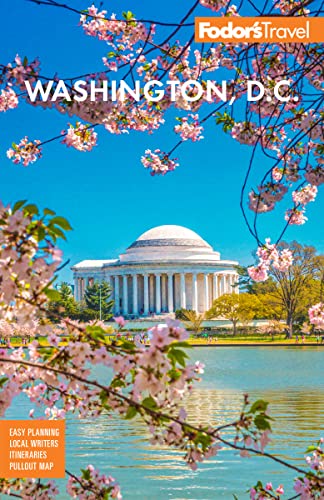Car
A car is often a drawback in Washington, D.C. Traffic is awful, especially at rush hour, and driving is often confusing, with many lanes and some entire streets changing direction at the beginning and end of rush hour. Most traffic lights stand at the side of intersections (instead of hanging suspended over them), and the streets often are dotted with giant potholes. The city's most popular sights are all within a short walk of a Metro station, so do yourself a favor and leave your car at the hotel. If you're visiting sights in Maryland or Virginia or need a car because of reduced mobility, time your trips to avoid D.C. rush hours, 7–10 am and 3–7 pm.
With Zipcar, an urban car-rental membership service, you can rent a car for a couple of hours or a couple of days from convenient Downtown parking lots. A one-time application fee of $25, an annual membership fee of $70 (or $7 per month with a monthly plan option), plus hourly rates starting at $7.75, or $66 per day, buys you gas, insurance, parking, and satellite radio. Reserve online or by phone.
Another option is Free2Move, a car-sharing program featuring white Chevrolets, with a one-time registration fee of $10. Rates are $0.47 a minute, $13 an hour, or $95 a day. There is no additional cost for insurance, gas, or parking. One advantage of Free2Move is that you can pick up and end rentals in on-street public parking spots.
Like the comfort of a car but don’t want to drive? Uber is your answer. You can request a ride through the mobile app or the Uber website. Drivers are available seven days a week, 24 hours a day. Once you request your ride, you’ll be able to see exactly where the driver is and how long you’ll have to wait. The fare for a Black (sedan) is $7 base charge, plus $3.40 per mile and $.40 per minute; the SUV fare is $14 base charge, plus $3.65 per mile and $0.45 per minute; the economy option, UberX, charges a $1.15 base rate plus $1.02 per mile and $0.17 per minute. After registering, your credit card information is kept on file and your card is charged upon completion of your ride. When demand is high due to weather, holidays, or special events, rates can be considerably higher. There's a cancellation fee of $5. Other ride-sharing apps like Lyft offer similar options.
Parking
Parking in D.C. is a question of supply and demand—little of the former, too much of the latter. The police are quick to ticket, tow away, or boot any vehicle parked illegally, so check complicated parking signs, and feed the meter before you go. If you find you've been towed from a city street, call 311 or the Department of Public Works Customer Service Center at 202/541–6083. Be sure you know the license-plate number, make, model, and color of the car before you call.
Most of the outlying, suburban Metro stations have parking lots, though these fill quickly with city-bound commuters. If you plan to park in one of these lots, arrive early.
Downtown private parking lots often charge around $9–$10 an hour and up to $40 or more a day. Most of the streets along the Mall have metered parking. There is no parking at the Lincoln or Roosevelt memorials. If you don't find street parking nearby, try along Ohio Drive SW and in three lots in East Potomac Park, south of the 14th Street Bridge.
Rules of the Road
You may turn right at a red light after stopping if there's no oncoming traffic and no signs indicate otherwise, but D.C. has many such signs and one-way streets. When in doubt, wait for the green. The speed limit in D.C. is 25 mph. Beware of HOV express lanes on major highways during rush hours (you need an E-ZPass to use them, and costs are high).




